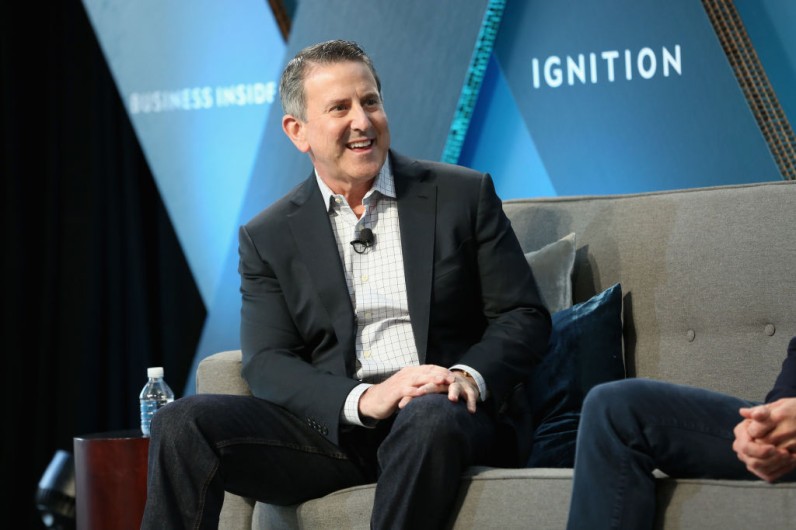Amid the ongoing battle against theft, Target CEO Brian Cornell has asserted that customers are expressing unexpected gratitude for the retail giant's unconventional strategy of locking up everyday merchandise.
Cornell disclosed in a recent statement that numerous shoppers are now offering a surprising "big thank you" in response to the increased availability of in-stock items and acknowledged the frustration caused by the need for heightened security measures.
This move, aimed at curbing theft and safeguarding profits, comes at a crucial juncture for Target as the company grapples with both the challenges of sales growth and the escalating impact of theft on its bottom line.

Shopper Response to the Policy Has Been Positive, Says Target CEO Brian Cornell
During Wednesday's media call with reporters discussing Target's fiscal third-quarter earnings, Brian Cornell told CNBC reporter Courtney Reagan that shopper response to the policy has been "positive" after he was asked if the company can quantify the sales lost from shoppers who are frustrated with waiting for workers to unlock cases in-store.
Cornell provided insights on the impact of merchandise security measures. He said, "Courtney, just in the last week I've been on the East Coast and on the West Coast in many of those stores that you've talked about where, items have been locked up."
"And actually what we hear from the guests is a big thank you because we are in stock with the brands that they need when they're shopping in our stores. And because we've invested in team member labor in those aisles and make sure we're there to greet that guest, open up those cases, and provide them the items they're looking for," he added.
Cornell maintained that the positive customer response underscores their initiative's effectiveness, particularly in securing commonly stolen items, such as body wash, toothpaste, and deodorant, behind protective glass panels.
When questioned again by CNBC to verify whether Target had experienced a noticeable decline in sales or foot traffic in stores implementing merchandise security measures due to the inconvenience of waiting for items, Cornell responded, "Courtney, in many cases, it's just the opposite. The fact that we're in stock is what's most important for the guests,"
He added, "And they understand the fact that we've had to make some changes to ensure the safety of the product and the fact that they have product in stock when they're shopping the stores."
Pervasive Problem of Retail Theft
In a separate interview with CNBC's Jim Cramer, Brian Cornell discussed the pervasive problem of retail theft, emphasizing its industry-wide impact rather than being specific to Target alone.
"I'm really pleased with the progress that we've seen," Cornell said. "But this isn't a Target issue, this is a retail issue."
In September, Target announced it would close nine stores in prominent urban centers like New York City, Seattle, San Francisco, and Portland. The decision was attributed to concerns related to incidents of violence, theft, and organized retail crime.
However, even with the closure of some locations, CNBC reported that Cornell emphasized the ongoing commitment of the company to maintain a robust presence in urban areas.
"We didn't have a presence in Manhattan. We've had 12 stores now. We just opened up a new one in Union Square," he noted. "And those stores are part of the community. So we are very committed to those stores, we're committed to growing our store base."
The CEO's statement underscores his commitment to expanding Target's store base and emphasizes the integral role of these stores within their respective communities.
Following an earnings report that surpassed Wall Street's expectations, Target's shares experienced a significant surge of almost 18% on Wednesday, reflecting the positive reception of the financial results.







Join the Conversation